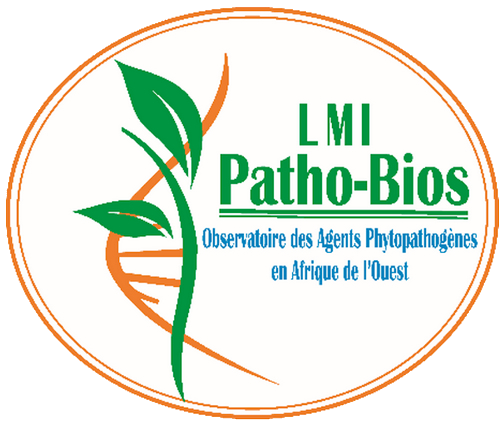LMI Pathobios
Observatory of Plant pest and Disease in West Africa
The PathoBios International Joint Laboratory, a Observatory of Plant pest and Disease in West Africa : biodiversity and biosecurity, formalized the long-term partnership between INERA in Burkina Faso and IRD in France in the field of crop protection. It was created in 2013 for a period of 5 years, then renewed in 2019 with a broader partnership with universities in Burkina Faso, UNB, the Joseph-Ki Zerbo University, as well as CIRAD in France, and UCL in Belgium.
PathoBios is located in two sites in Burkina Faso: INERA Kamboinsé, not far from Ouagadougou; and INERA Farako-Bâ, in Bobo-Dioulasso. These operational platforms enable to conduct major manipulations in molecular biology, microbiology and plant experimentation. In addition to the work done in Burkina Faso, there are dynamic collaborations (common projects, guests, research travels) with many neighbouring countries.
PathoBios aims at offering solutions to the daily-basis issues of farmers: limiting the damages due to bio-aggressors in crops in order to ensure food security in the context of climate change and rapid population growth;
To this purpose, it is necessary to:
- Biomonitor crop pest populations
- Develop and/or disseminate pest resistant cultivars
- Identify efficient methods to control the health quality of seeds.
Researchers at the PathoBios publish the results of their innovative research, with the objective to achieve scientific excellence, notably with the establishment of new diagnosis tools, molecular epidemiology, biotechnologies, and towards integrative approaches such as “One Health” or Phytobiomes”.
PathoBios contributes to capacity building, with training of students (mainly Master and PhD students), organizing thematic workshops and teaching at universities in Burkina Faso and neighbouring countries.
Bio-monitoring of food crops
Bio-monitoring, on the long run, on understanding the complex interactions in the field in relation to the environment and by continuously assessing the reliability of cultivars in the fields.
Partners: IPME, DIAPE, BGPI, PVBMT, program Riz, German Cooperation through WASCAL (West African Science Service Center on Climate Change and Adapted Land Use)
.
Developing pest resistant cultivars
Identifying resistant genotypes and sources that breeders can use in their improvement program: being able to anticipate, identify new sources of resistance or interbreeding, and to support the breeders. Study resistance breakdown to develop durable resistance and disseminate it to the field.
Identifying and disseminating cultural practices for integrated pest control
Technical documents on the “best practices” are drafted and provided to the farmers in the major languages of the country (French, Mooré and Dioula). Adequate trainings are organized to better support these practices for integrated pest control.
Identify the microorganisms causing diseases and understanding the factors driving epidemics in the agro-ecosystem
PathoBios: Observatory of Plant pest and Disease in West Africa
